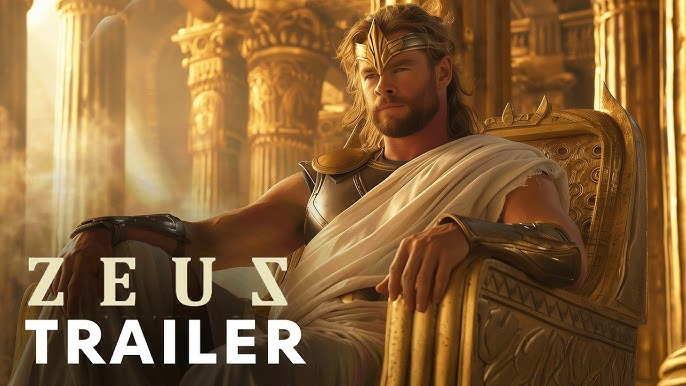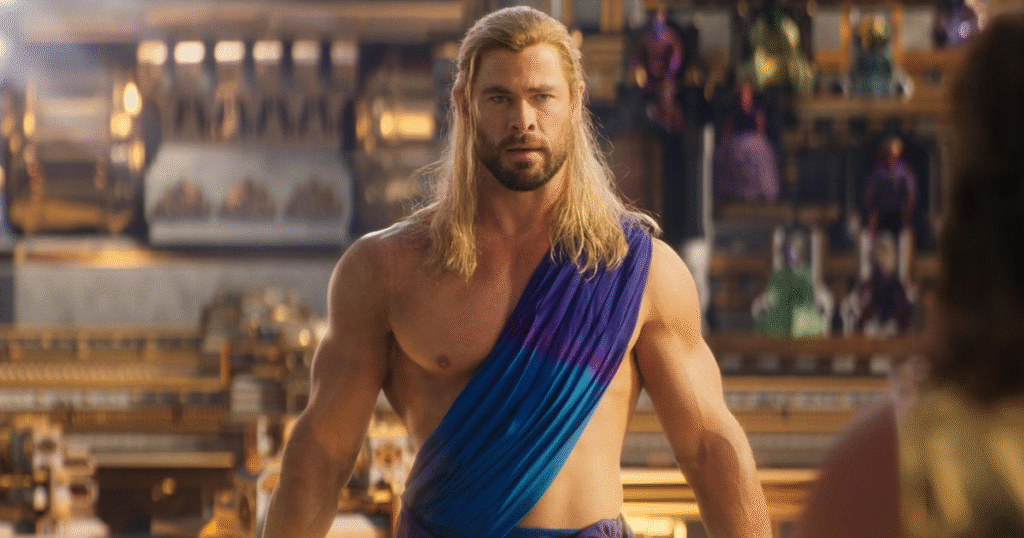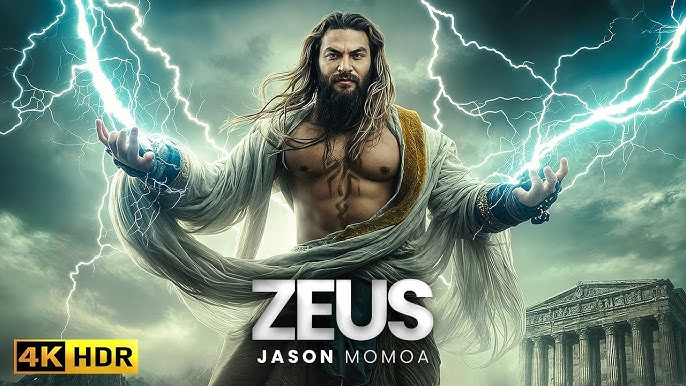The skies split open, thunder roars, and the age of myths is reborn with Zeus (2025) — an epic reimagining of the King of the Gods like we’ve never seen him before. Directed with sweeping grandeur and emotional grit, the film launches Chris Hemsworth into his most commanding role yet — not as a Marvel superhero, but as a flawed, ancient deity battling time, treachery, and the death of belief itself.
In a bold twist on the mythos, Zeus isn’t set in an age of golden temples and unshakable power. This Olympus is crumbling, its halls echoing with betrayal and silence. The gods are no longer worshipped, but hunted — relics of a forgotten order. Hemsworth’s Zeus is no longer the untouchable patriarch, but a warrior king in exile: battle-scarred, disillusioned, and forced to reckon with his own failings.
From the first frame of the trailer, the scale is staggering. Burning skies over Greece. Titans awakening from Tartarus with molten eyes and chained fury. A fallen Mount Olympus, desecrated by divine war. But amid the spectacle, what truly elevates ZEUS is its soul — a character study wrapped in celestial conflict.

Hemsworth channels a raw, primal energy — far from the playful charm of Thor. His Zeus is haunted by prophecy and paralyzed by doubt. There’s rage, yes, but also sorrow. And when he’s cast down from his throne by an Olympian coup (hinted to be orchestrated by Hades and a rogue Ares), the film strips him to his essence: not a god, but a father, a leader, and a man who must fight for the right to exist.
The mortal realm is where the story finds its heartbeat. Here, Zeus meets Thalia — a fearless human warrior portrayed by Florence Pugh — who challenges him not only with her blade, but with her belief in a world free from divine tyranny. Their uneasy alliance is both electric and emotionally charged, offering a fresh contrast between eternal legacy and mortal courage.
Joining them is Athena, played with cool intellect and fiery resolve by Jodie Comer. Her loyalty is torn between Olympus and justice, and her arc suggests that the war for the Primordial Flame — the film’s mythic MacGuffin — is not just about restoring power, but redefining it. Athena’s tactical genius pairs perfectly with Thalia’s reckless heart, while Zeus must learn to lead not as a god above, but as an equal beside.

The villains loom like storm clouds. The Titans are rendered in terrifying, titanic scale — less cartoonish beasts, more elemental nightmares. But it’s the Olympian traitors, shrouded in gold and shadows, that pose the deeper threat. The trailer teases a final confrontation not just of power, but of ideology: Should gods rule… or should they serve?
Visually, ZEUS is pure mythic cinema. Think Gladiator meets Clash of the Titans meets Dune. The battle scenes are thunderous and grounded, blending practical stunts with sweeping VFX that never overshadow the stakes. Lightning crackles through cracked shields. Mountaintops collapse under divine fury. And the Primordial Flame — glowing like a heartbeat — is rendered with such majesty, it feels like the soul of the film itself.
The score, composed by Bear McCreary, is a thunderous triumph. Heavy drums meet ancient chants and orchestral swells, evoking both dread and wonder. It doesn’t just accompany the action — it drives it.
But above all, ZEUS is a story of redemption. Of what it means to be divine in a world that no longer needs gods. Of power tempered by humility. Of a king learning that true strength lies not in dominion, but in sacrifice.

⭐ Rating: 9/10 – A myth reborn with depth, heart, and fury. ZEUS delivers a thunderous epic grounded in emotional truth. It’s not just a spectacle — it’s a reckoning.

